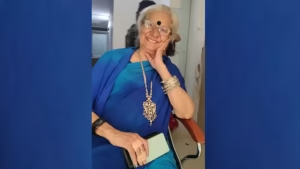Dating with Disabilities: Breaking Stereotypes and Embracing Love

Dr. Danielle Sheypuk, a licensed clinical psychologist and wheelchair-bound model, shares her candid experiences with dating, sex, and societal misconceptions in a recent TEDx Talk.
In her humorous opening, Sheypuk recounts a fantastic Match.com date that took an unexpected turn. On the third date, during a romantic dinner, her date raised concerns about her ability to be a mother and wife due to her disability.
With a witty retort, Sheypuk jokingly mentioned hiring help like any New Yorker would. Unfortunately, despite her humor, the date ended abruptly, leaving her to ponder a recurring issue in society: the exclusion of people with disabilities from the dating scene.
She emphasizes that individuals with disabilities have the same emotional needs and desires as everyone else. Society, influenced by media and misconceptions, often overlooks this fact. She questions whether the injustice stems from the concept of the “poster child” inducing pity or mainstream porn’s unrealistic portrayals of sexuality.
Addressing the prevailing silent message, Sheypuk highlights the damaging belief that individuals with disabilities are considered too sick for sex. She discusses the societal continuum of sexual appeal, with Victoria Secret models at one extreme and people with physical disabilities at the other.
She argues that the further one deviates from the societal sex icon, the more desexualized and taboo the topic becomes. Unlike quick fixes like Botox or Spanx, people with disabilities lack such solutions, facing societal limitations that impact their dating lives profoundly.
Dr. Sheypuk encourages society to broaden its perspective, emphasizing the importance of understanding and embracing diversity in the realm of dating and relationships. She concludes by urging viewers to watch her entire talk for a deeper insight into the challenges faced by individuals with disabilities in the dating world.
Re-reported originally published in The upworthy









